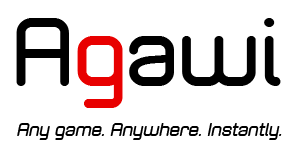Cloud-based gaming provider Agawi, which began life as iSwifter for iPad with a much more narrow focus on delivering Flash-based gaming to Apple’s tablet devices, today announced a new collaboration with Microsoft to bring its streaming client to Windows 8 devices. Agawi is looking at any new platforms to address potential gaming deficiencies there with a streamed solution, but CEO Peter Relan explained in an interview why it won’t follow OnLive down the garden path.
Agawi’s service expansion will deliver cloud-based games via a native Windows 8 application, designed to work with the new Microsoft operating system’s user interface (henceforth known as the interface formerly known as Metro). It’ll deliver not only social and Facebook games, which is where iSwifter got its feet wet, but also mid-range and hardcore titles, including some the company describes as “AAA,” though it isn’t quite ready to announce its top-tier publishing partners yet.
Moving into core games might raise some red flags among those out there who’ve been following the cautionary tale that cloud-based game streaming service OnLive has become. But Relan says that Agawi is both well aware of, and well-positioned to avoid the same pitfalls that OnLive has encountered.
“The first problem [OnLive had] is that they tried to run a B2C service,” Relan said. “We are a B2B platform, we’re engaging with publishers. We don’t want to be a B2C service. We’re saying, ‘Look, here’s a technology, a platform that any publisher can use and bring their game to Windows 8.”
Rather than act as a competitive storefront with some publisher-owned stores, Agawi wants to enable them to deliver their products to users by facilitating the relationship between game publisher and customer, not replacing it. Another key difference is on the tech side, according to Relan, which saves the company plenty of overhead compared to OnLive.
“Notice that Azure is a very central part of this,” he said. “OnLive, the reason they went bankrupt basically is that they spent a huge amount of money buying servers and running their own data centers. We’re not.”
Relan says that instead of going after delivering top-notch gaming from the start before the infrastructure was really there to support it — meaning that it had to be built from scratch — OnLive set itself up for failure. Agawi instead started slow, tackling games with very limited requirements, and worked its way up to top-tier titles.
Still, Relan says Agawi is being cautious. The company won’t target games that have massive hardware requirements and require ultra-low latency to be enjoyable, such as immersive 3D multiplayer shooters. But some of the best current action-adventure titles enjoyed best solo will definitely be among those they announce as Agawi partners by the end of Q4 this year.
Agawi is working with a strategy of opportunistic expansion and adding supplemental support for things like hardware controllers and Android devices as needed. It’s trying to take a more exploratory route than OnLive’s big stuff first, details later strategy, and hopefully that’ll end up resulting in a more dependable, consistant and lasting experience for gamers.
